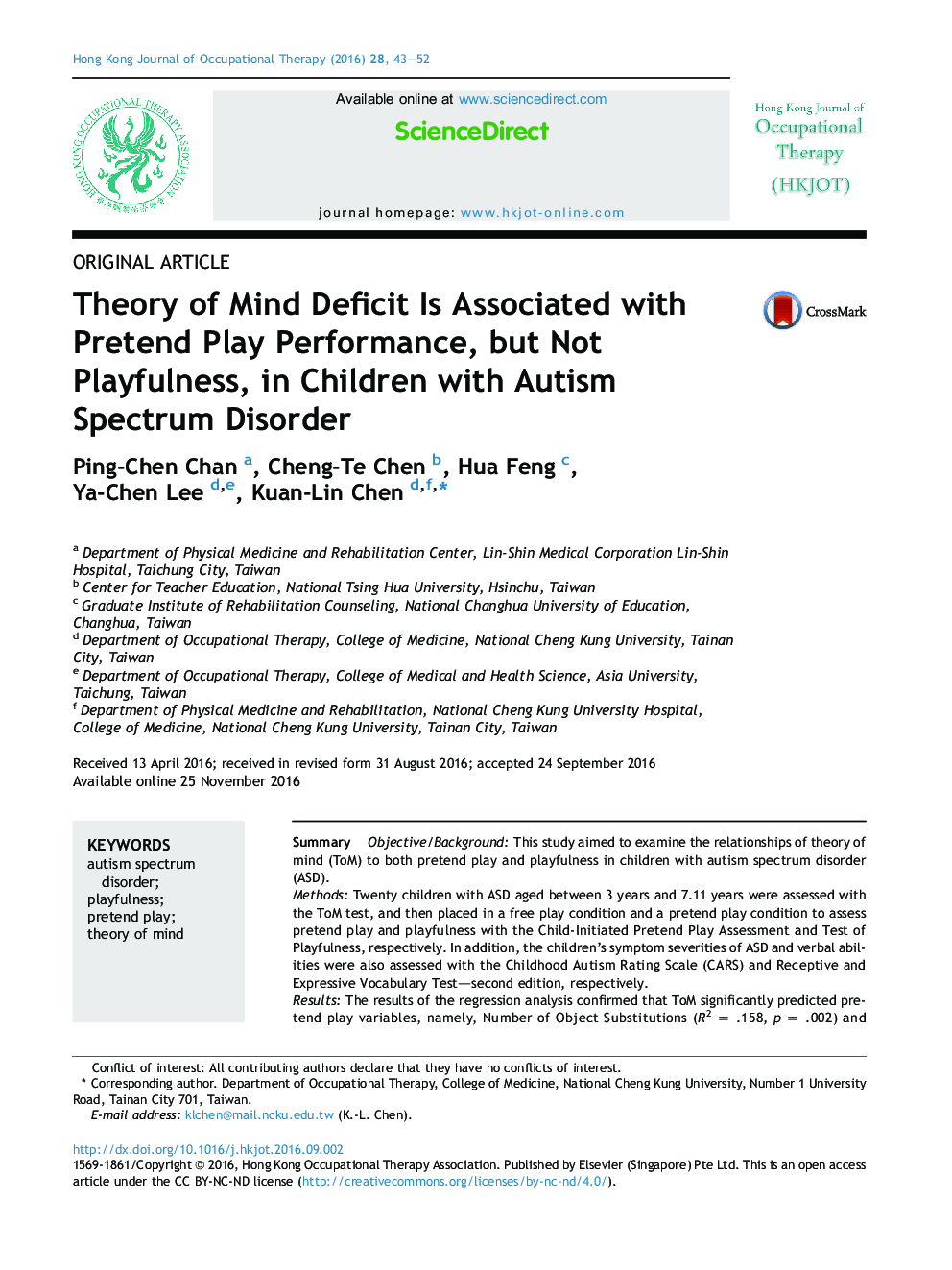| Article ID | Journal | Published Year | Pages | File Type |
|---|---|---|---|---|
| 5573420 | Hong Kong Journal of Occupational Therapy | 2016 | 10 Pages |
SummaryObjective/BackgroundThis study aimed to examine the relationships of theory of mind (ToM) to both pretend play and playfulness in children with autism spectrum disorder (ASD).MethodsTwenty children with ASD aged between 3 years and 7.11 years were assessed with the ToM test, and then placed in a free play condition and a pretend play condition to assess pretend play and playfulness with the Child-Initiated Pretend Play Assessment and Test of Playfulness, respectively. In addition, the children's symptom severities of ASD and verbal abilities were also assessed with the Childhood Autism Rating Scale (CARS) and Receptive and Expressive Vocabulary Test-second edition, respectively.ResultsThe results of the regression analysis confirmed that ToM significantly predicted pretend play variables, namely, Number of Object Substitutions (R2 = .158, p = .002) and Number of Imitated Actions (R2 = .175, p = .001), but not playfulness. The CARS score was a significant predictor of the Percentage of Elaborate Pretend Play Actions of pretend play (R2 = .075, p = .034), as well as the internal control (R2 = .125, p = .006) and framing (R2 = .071, p = .039) variables of playfulness.ConclusionThe findings support the idea that children with ASD who have better ToM might be able to develop better pretend play, but not better playfulness, which might be more strongly related to their autistic severity.
